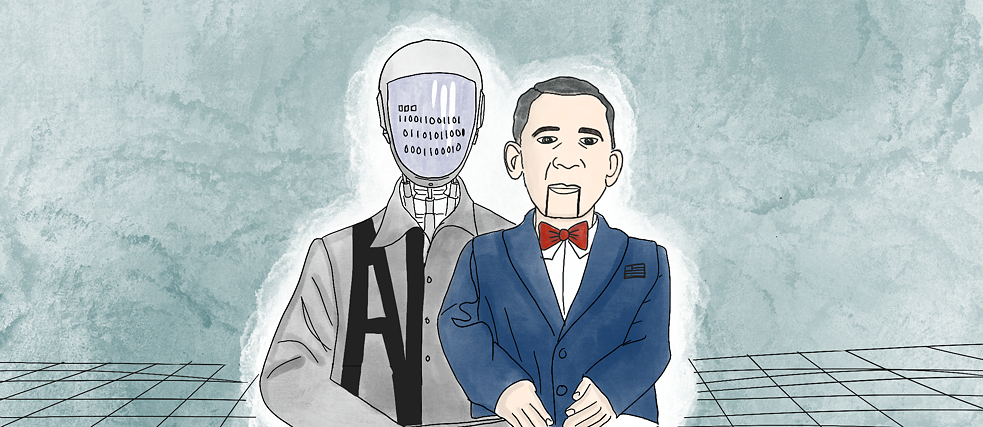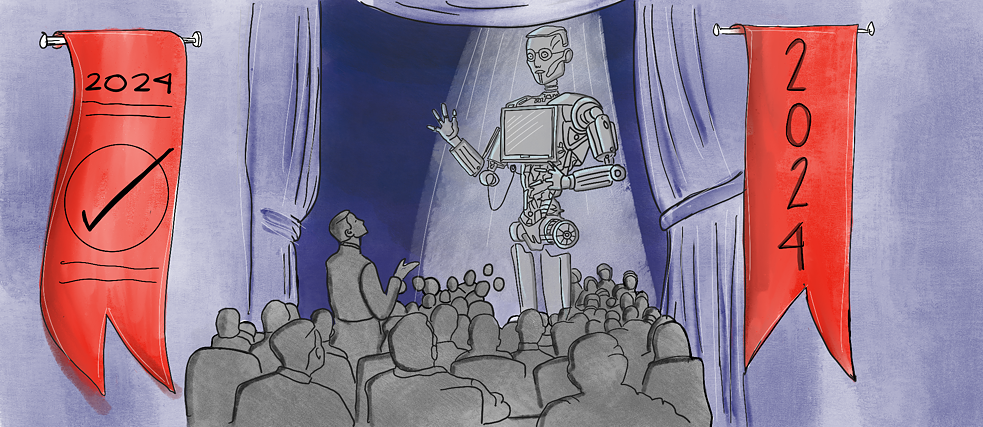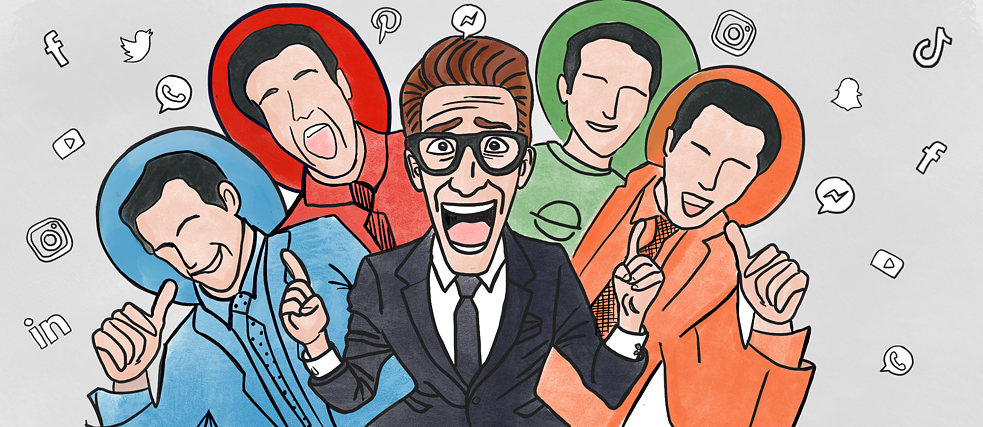Language is a captivating instrument, capable of enveloping the masses and creating subtle distinctions through word choice. Actor Benedict Cumberbatch demonstrated this superbly in the film The Imitation Game (Morten Tyldum, 2014), playing the role of mathematician Alan Turing (1912-1954). The plot explores the social complications associated with decoding carried out by the Enigma machine, developed by the Nazis during the Second World War to send secret messages. Turing deciphered those codes, highlighting that, surprisingly, the machine’s decision-making closely resembled human ability.
In the wake of this event, concern arose concerning the extent to which machines can compete with our free will. In 1950, Turing devised a test that assessed the ability of computers to respond similarly to human intelligence. The Turing test assesses whether a machine can behave intelligently like a human in conversations. Alan Turing proposed that if an evaluator cannot distinguish the machine from a human in a text chat, the machine passes the test. In recent years, life has lent itself to simulation, giving rise to various questions regarding our democratic processes.
I remember that video games like The Sims started experimenting with avatars and simulated decisions in the early 2000s. However, this begs the question: What happens when there are actors in digital realities with the ability to exert influence beyond the screen? Do our emotions justify our judgments and values? If we look at it from a broader perspective, AI and democracy may be in tension, especially considering that the algorithms used in democratic decision-making can be designed and adjusted by external entities. This raises the concern that a lack of transparency in AI’s operations may undermine public trust. However, collective thinking and public opinion are significantly shaped by persuasive discourses, and opinions are constantly up for debate due to a lack of knowledge and exploration of diverse perspectives.
According to experts at the Massachusetts Institute of Technology (MIT), the public sector and governmental institutions should consider adopting tools such as ChatBot or ChatGPT. Additionally, they propose managing communities by using avatars created in the metaverse. This would allow for an autonomous learning process, stimulating public debate and enabling direct decision-making without influence from corporations or monopolies.
DIGITAL POPULISM
Dismantling the word “deepfake” is revealing of the lie at its essence which underlies videos that, although fictitious, are surprisingly realistic thanks to AI’s manipulation. The accelerated spread of false content contrasts with the slow development of effective tools to detect it. Further, the absence of regulations regarding image rights adds a layer of complexity to this phenomenon.The constant challenge of submitting to the “Turing test” lies in the existence of artificial intelligence formats that recreate images and voices in a way that is almost indistinguishable from reality. These representations, like distorted reflections of characters, can spread messages with hidden motives. Deepfakes are precise tools that are used to manipulate emotions, using subliminal messaging that evokes feelings such as shame, pity, disgust, melancholy, rejection, and adoration.
This phenomenon challenges our ability to discern emotions since the videos manage to provoke genuine emotional responses, although they are artificially generated. The sense of community built through virtual dialogues can elevate fictitious or unthinking figures to positions of power. From a philosophical perspective, the inclination to believe in something higher is understandable, but reflective analysis becomes crucial when applied to the discourse of ephemeral popular figures.
Society is beginning to reveal the shortcomings of these popular figures as it becomes more accustomed to certain behaviors. When we observe the character of recent leaders, some stand out for their charisma while others are remembered for their bad decisions. Digital populism is focused on adoration and following figures that are exclusively created by social media or mass interaction, fostering a political system where loyalty and trust are difficult to establish. In this context, politics is no longer limited to influencing small segments of the population; its implications reach national governance. Responsibility lies in not resorting to recourse such as controversy, narcissism, or radicalism, as is evident in the case of Javier Milei in Argentina. His discourse responds to the extreme right to seek votes, bolstering his power, which ultimately landed him the presidency.
The previous reflection points to the importance of leaders being able to unite the population by expressing the truth through authentic language. In this context, the deepfake phenomenon stands as an eloquent example of how one can pursue particular interests, striking a skillful balance between image and sound. In 2023, we are witnessing a new version of the Turing test, one that challenges our sensibilities and free thought by blurring the line between fiction and reality.
The European Union recognizes the relevance of these videos as potential tools for disinformation. In this scenario, it is imperative to broaden our criteria when selecting political figures to avoid falling into the trap of adoring false idols. This call for caution and greater discernment is imperative to the preservation of the integrity of our democratic processes and the formation of our opinions.



